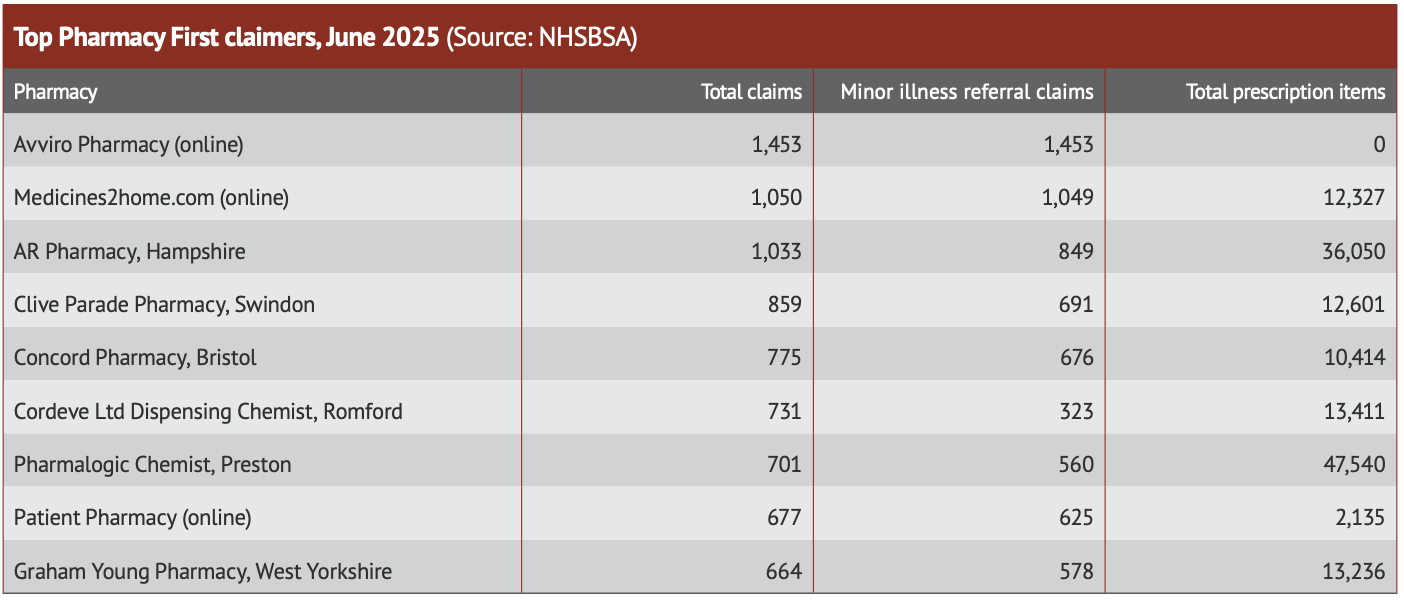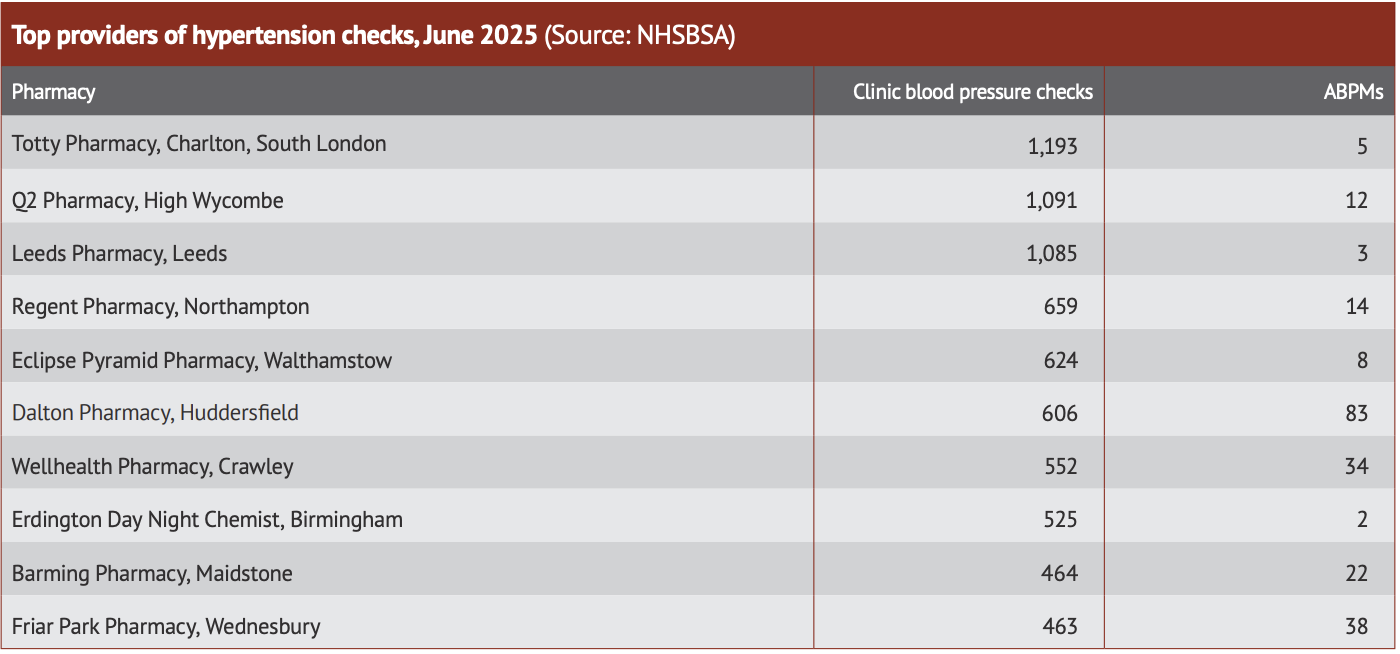Who are the top performers with Pharmacy First and hypertension checks?
In Analysis
Follow this topic
Bookmark
Record learning outcomes
NHSE says it would like – one day – to see a walk-in minor illness service, but how likely does it look on current trends? Plus a look at the latest league tables for Pharmacy First and blood pressure checks
NHS England’s (NHSE’s)pharmacy director, Ali Sparke, has said a walk-in Pharmacy First service would be welcomed by him and his colleagues, news that will be warmly received by many of our readers. Only he didn’t mean anytime soon, as in his view the model of GP referrals is still needed to embed good working relationships between community pharmacies and GP surgeries.
A cynic might point out that we have had five years of GP referrals, when you consider that the now-defunct Community Pharmacist Consultation Service incorporated referrals from late 2020. Will it take another five years before everyone is on good enough terms to satisfy policymakers’ wishes?
A truly committed cynic might even wonder if money is the stumbling block, and not the “really important” work of pharmacists and doctors learning to play nice. But all that’s by the by.
A slide in Sparke’s presentation at the Pharmacy Show in October showed that as of the end of June this year, 97 per cent of 10,125 contractors were signed up to provide the service, demonstrating a consistent level of willingness since it launched in late January 2024. Collectively, these pharmacies have achieved over 3.4 million clinical pathway consultations, with consultations for acute sore throat and uncomplicated urinary tract infections accounting for 1.9 million of that total.
But frustratingly for many, GP referrals – that is, the lack of them – continue to be a stumbling block. Sparke confirmed that less than half of all clinical pathway patients (1.6 million) had come via general practice, with almost a quarter of practices (23 per cent) still not making referrals.
It could be a lack of awareness, it could be practice staff being too busy battling their existing workload to contemplate a new approach, or in some cases it could be an outright refusal to engage with the services.
A recent letter, seen by The Times newspaper, sent by senior figures in the British Medical Association (see news, page 16) imploring doctors not to send their patients to pharmacies suggests strong scepticism in some quarters.
By numbers
Pharmacy First has seen over 7 million consultations delivered in total, when 1.9 million minor illness referrals and around 2 million urgent medicine supplies are accounted for with the pathway consultations.
The service also seems to have fallen off something of a cliff since March, when the number of pathway consultations needed to trigger the monthly threshold payment of £1,000 rose to 30 – something that appears to be unachievable for a majority of England’s pharmacies at present.
Looking at the top performers for Pharmacy First in June, the most recent month for which NHS Business Services Authority (NHSBSA) data is available, suggests that while clinical pathway consultations are vital to setting the sector on a new professional course, they are not necessarily the biggest moneymaker the service has to offer.
First and second place go to online pharmacies Avviro Pharmacy and Medicines2Home. According to the NHSBSA data the top claimer dispensed no items that month and did not carry out any services other than the 1,453 minor illness consultations that earned its spot – not even submitting claims for other parts of the Pharmacy First service. The company’s items appear to have dropped from 4,447 in July to zero at the start of this year and never climbed back.
The other leaders principally comprise high-items independents – bearing out the widely held assumption that smaller operators are the most agile when it comes to adopting new services– and in most cases (Cordeve Chemist excepted), minor illness claims make up a significant majority of their total number of Pharmacy First claims in June.
Hypertension checks
Meanwhile, the number of hypertension checks carried out by pharmacies in England rose by 2,620 from May to June, with 262,385 clinic blood pressure checks carried out in the latter month. The number of checks converted by pharmacies into provision of ambulatory blood pressure monitoring (ABPM) remains low, at 24,993.
As we’ve previously reported, that ratio between the two arms of the service is much too low for NHSE’s liking – but many pharmacies complain that ABPM is simply very unpopular with their patients. A new contractual rule that would have required pharmacies to carry out one ABPM per month to get their Pharmacy First threshold payment was due to be introduced in October but has been deferred as the health service considers the data and the arguments put to it by Community Pharmacy England.
A look at the top performers for hypertension checks suggests that independents continue to do best at this service, and that none of the highest claimers for clinic checks are reaching anything near the 30 per cent ABPM conversion rate that the NHS wishes to see.



